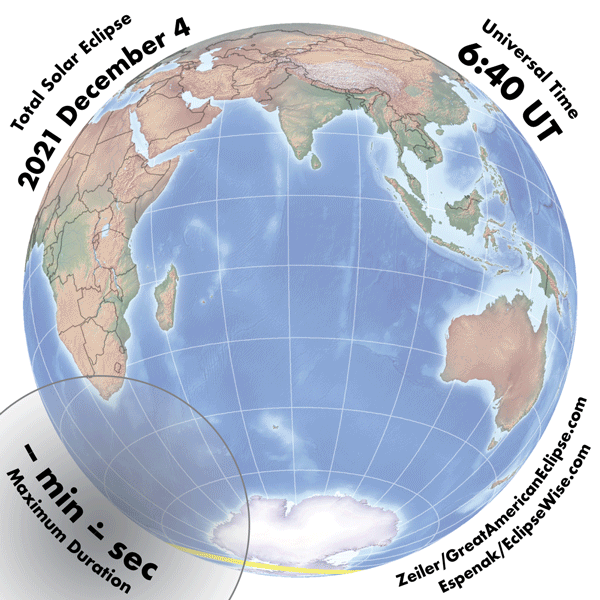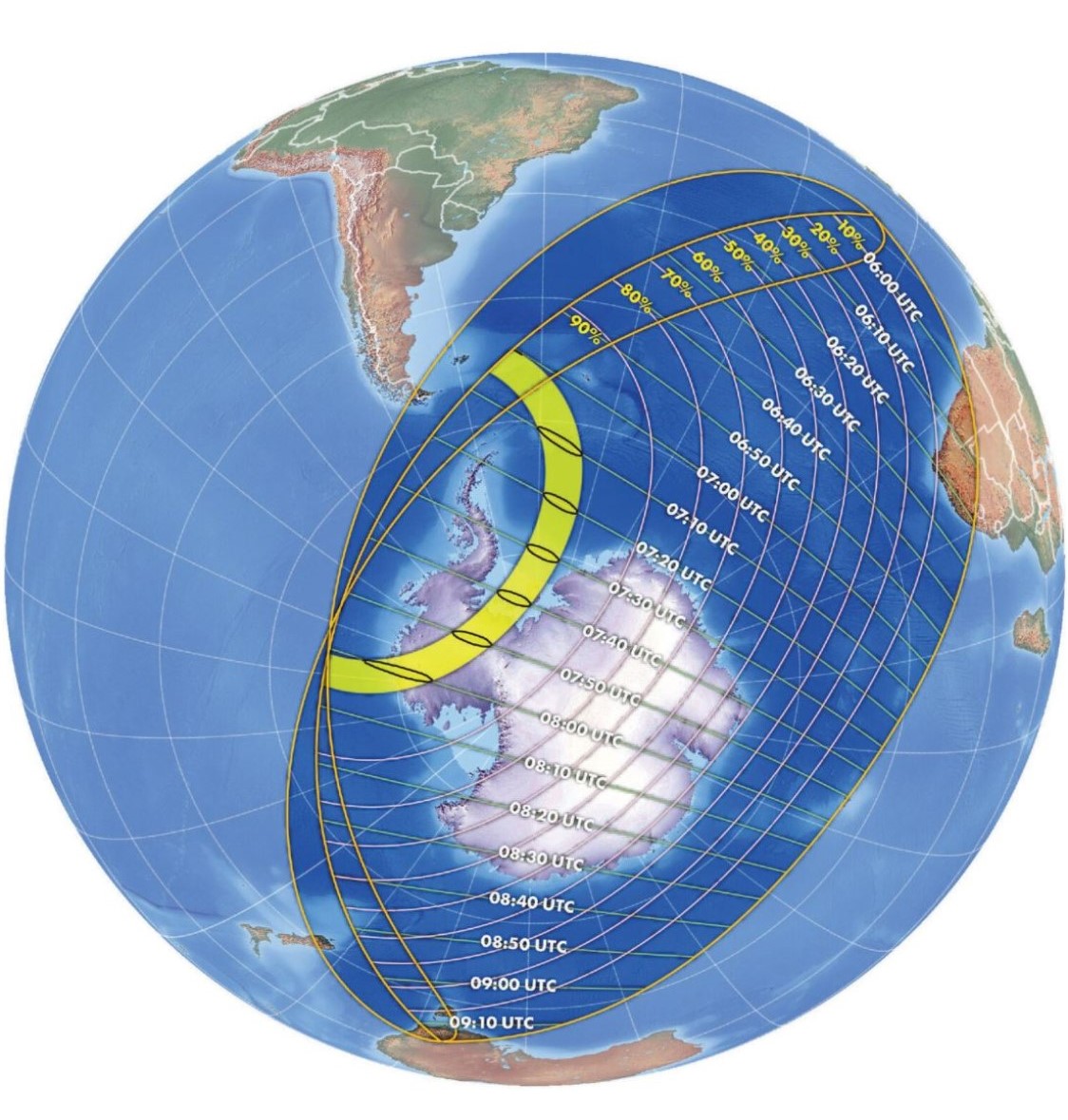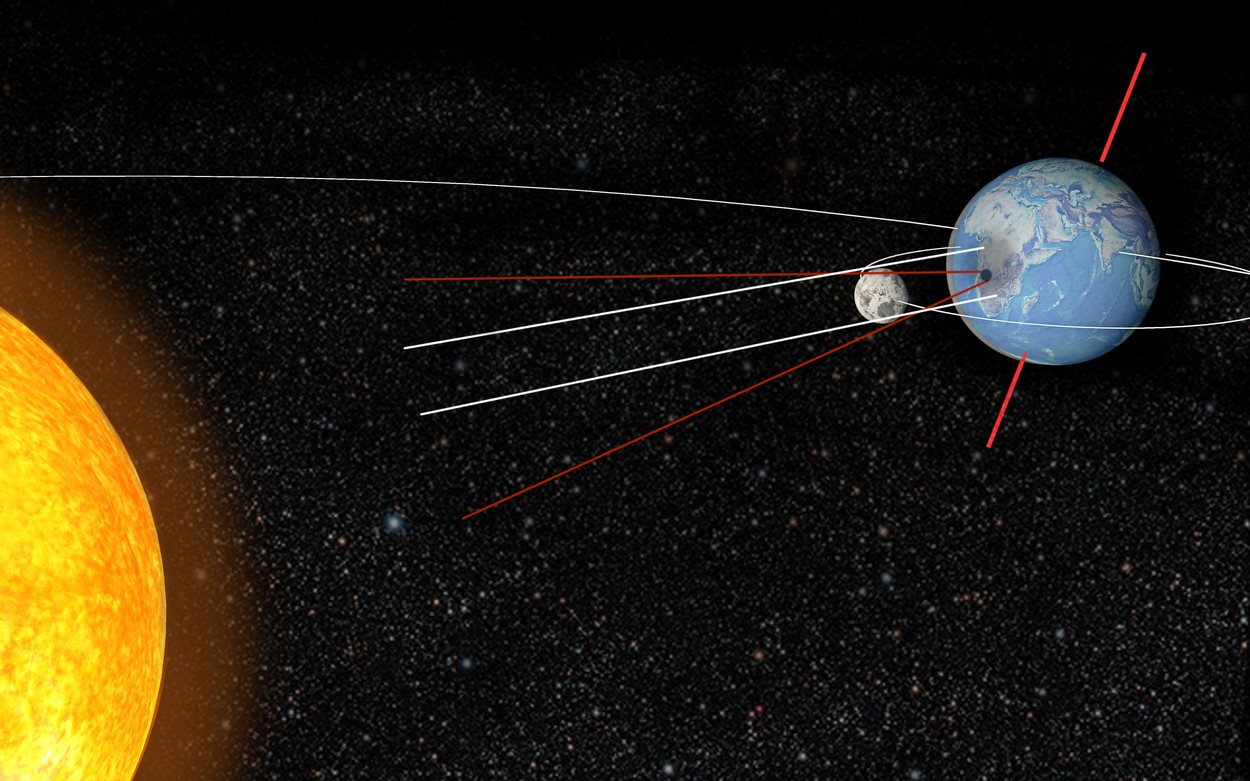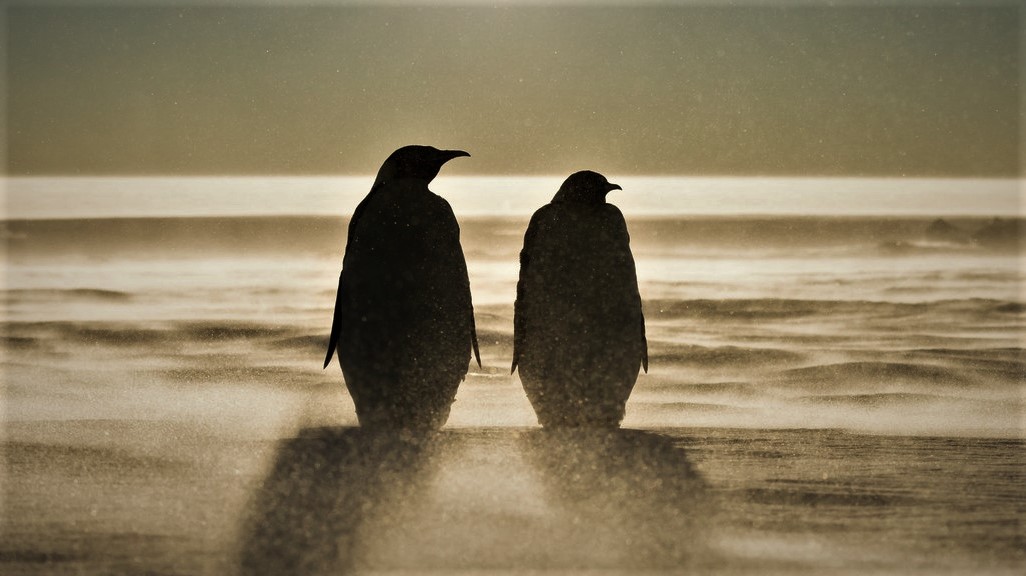A breathtaking solar eclipse. He was watched by flocks of penguins and a handful of people
The moon has prepared a spectacular show for this weekend – a total solar eclipse. It was not visible from Europe, it was possible to observe it only from a part of Antarctica and the surrounding area, where penguins, polar bears, astrologers and groups of enthusiasts were located.
A total eclipse occurred after eight o’clock in the morning, Central European Time.
Summer is now in Antarctica and the sun is not setting there. During the eclipse, however, there was a brief darkness that he would not see in the area for several months.
The eclipse could also be observed in the Weddell Sea, where several ships sailed. Or on board aircraft. Petr Horálek from the Institute of Physics of the Silesian University in Opava flew in one of them, as a member of the scientific mission. He posted a hilarious picture recorded in the South Atlantic near Falkland on Facebook.
source: Facebook / Petr Horálek
The photo shows not only the actual solar eclipse, the image also shows the area of the moon’s shadow gliding across the Earth.
Interesting science and a great spectacle
In Antarctica, a belt of total eclipse advanced across the ice shelf Ronne and Ellsworth’s land, the rest of the continent was in partial shadow.
It was possible to watch the total eclipse in individual places (yellow belt) for less than two minutes. | zdroj:
Great American Eclipse
Residents of southern Africa, Patagonia, southeastern Australia and the South Island of New Zealand could also observe partial eclipses.
A solar eclipse is an astronomical phenomenon that occurs when the Moon enters between the Earth and the Sun, thus partially or completely covering it.
In the event of a total eclipse, the shaded part of the planet darkens significantly and also cools down quickly. The stars light up in the sky. During the phenomenon, a prominent corona can be seen around the Sun obscuring the Sun, a brightly shining environment around the Sun formed by escaping hot gases.
Solar eclipse belt. The area of total eclipse (totality belt) is marked in yellow. | zdroj:
Great American Eclipse
For astronomers, a total solar eclipse was another great opportunity to study how this phenomenon affects space weather.
During the eclipse, British Antarctica Survey researchers used magnetometers in Antarctica to measure changes in the Earth’s magnetic field, in the area of the total eclipse.
A schematic illustration of a solar eclipse that occurs when the Moon enters between Earth and our star. | source:
Profimedia
Physicist Mervyn Freeman, who was on the team monitoring the impact of the eclipse on “space weather” on the site Phys He said: “We expect a solar eclipse to change the electric currents in the upper atmosphere. It’s a phenomenon we don’t fully understand yet. “
In addition to the scientific opportunity, the eclipse was, of course, also a great spectacle. In the past, people feared him. They took it as a bad omen. But times have changed and today we welcome eclipses and admire their beauty.
Who knows what view of the Saturday eclipse the Antarctic penguins had.
Was it an experience for the emperor penguins living in Antarctica? | source:
Profimedia
In any case, total eclipses are rare. You can go for the next one on April 8, 2024. It will be visible in the strip crossing Mexico, the United States and Canada.
This phenomenon last occurred on the territory of today’s Czech Republic on May 12, 1706. Our descendants will be able to observe the nearest one on October 7, 2135, when the total eclipse belt will move 30 kilometers north of Prague.
Let’s wish them a clear sky.
– .






